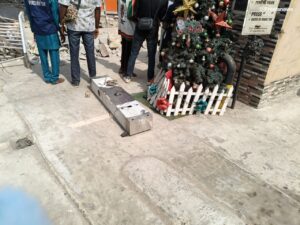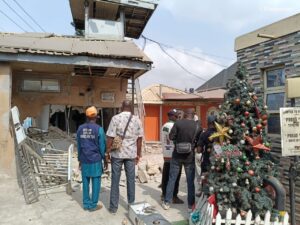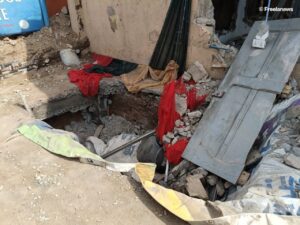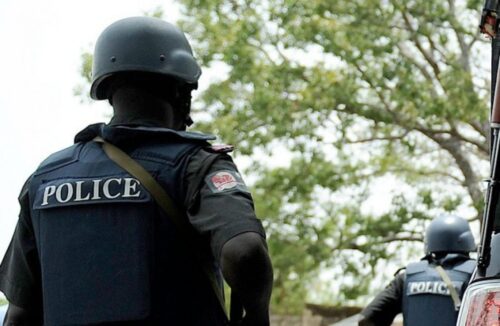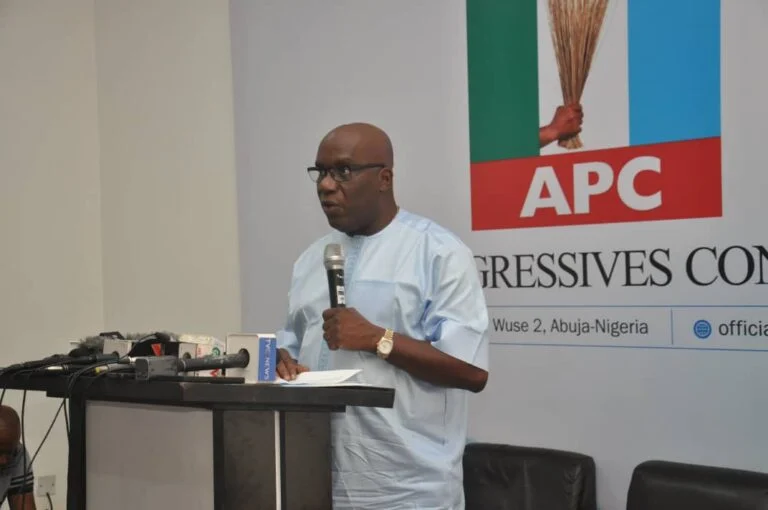The limbless, headless torso of the chief executive of Gokada, Fahim Saleh, was found inside his Manhattan condo Tuesday afternoon with an electric saw lying next to the remains, police said.
Police made the diabolic discovery in a building on E. Houston St. at Suffolk St. on the Lower Eastside about 3:30 p.m.
Police found contractor bags near the torso, sources said, but didn’t immediately open them to see if the body parts were inside.
An NYPD official said investigators believe the victim is tech entrepreneur Fahim Saleh, 33, a millionaire tech entrepreneur who bought the condo for $2.25 million last year.
Saleh, a website developer turned venture capital, is the CEO of a motorcycle-sharing company in Lagos, Nigeria.
NYPD spokesman Sgt. Carlos Nieves said all of the body parts were found at the scene but declined to give specifics on where.
“We have a torso, a head that’s been removed, arms, and legs. Everything is still on the scene. We don’t have a motive,” he said.
Detectives were waiting for fingerprint and forensics tests on the body, police sources said.
The NYPD went to the seventh-floor condo after the victim’s sister called 911. She came calling Tuesday because she hadn’t seen her brother in a day, then discovered his dismembered corpse, an NYPD spokesman said.
An elevator surveillance camera may have caught the victim’s last moments, sources said. It shows the victim getting into the elevator Monday, followed quickly by a second man, dressed in a suit, wearing gloves, a hat and a mask over his face.
After the victim walked out onto his floor, he fell immediately, possibly shot or stunned.
“The perp had a suitcase. He was very professional,” one police source said.
The curtains were drawn at the newly-constructed apartment building, where condos were sold starting at $2.15 million last year.
Neighbor Daniel Faust, 40, said he saw police lead two women from the building.
“There was one that came first, with short black hair. Then a second one came, a little taller and with long hair. They were just hysterical, I guess in disbelief. And then they left with the detectives,” he said.
Police also brought a dog, a mid-sized Pomsky, out of the building, he said.
Saleh has described his history as an entrepreneur in a series of posts on Medium.com. He got his start creating a prank calling website, then moved on to create a motorcycle taxi company in his parents’ native Bangladesh.
Most recently, he started Gokada, a motorcycle ride-sharing company in Lagos, but the company faced setbacks and mass layoffs after Lagos banned companies like his in January.
Detectives took his sister to the 7th Precinct stationhouse Tuesday night and ushered her away from reporters.
Later, two of Saleh’s friends, a man, and a woman, arrived at the precinct to check on his sister.
“He was extremely smart, ambitious, very kind,” the female friend said. “Always smiling.”
They described him as a self-made millionaire who brought tech companies into nations like Nigeria and Indonesia, an energetic person who loved gadgets and video games.
Though they believe he was targeted, he never acted like he was worried about anything, the friend said.
“He never said he was scared,” the male friend said. “[He was] always very happy-go-lucky.”
They said he had just moved in recently to this apartment – somewhere around the end of 2019. Saleh posted a photo of his new home on Twitter in December.
“I hope they find that person,” he said.
“Very nice guy,” said Susan Jeffers, who lived in Saleh’s last apartment building on E. 28th St. said. “We met him right at the end of him living here…. He was a young dude from Bangladesh.”
Another woman who works in his old building called Saleh a “big-time person.”

 BIG STORY3 days ago
BIG STORY3 days ago
 BIG STORY3 days ago
BIG STORY3 days ago
 BIG STORY1 day ago
BIG STORY1 day ago
 BIG STORY2 days ago
BIG STORY2 days ago
 BIG STORY4 days ago
BIG STORY4 days ago
 BIG STORY12 hours ago
BIG STORY12 hours ago
 BIG STORY1 day ago
BIG STORY1 day ago
 BIG STORY4 days ago
BIG STORY4 days ago





















